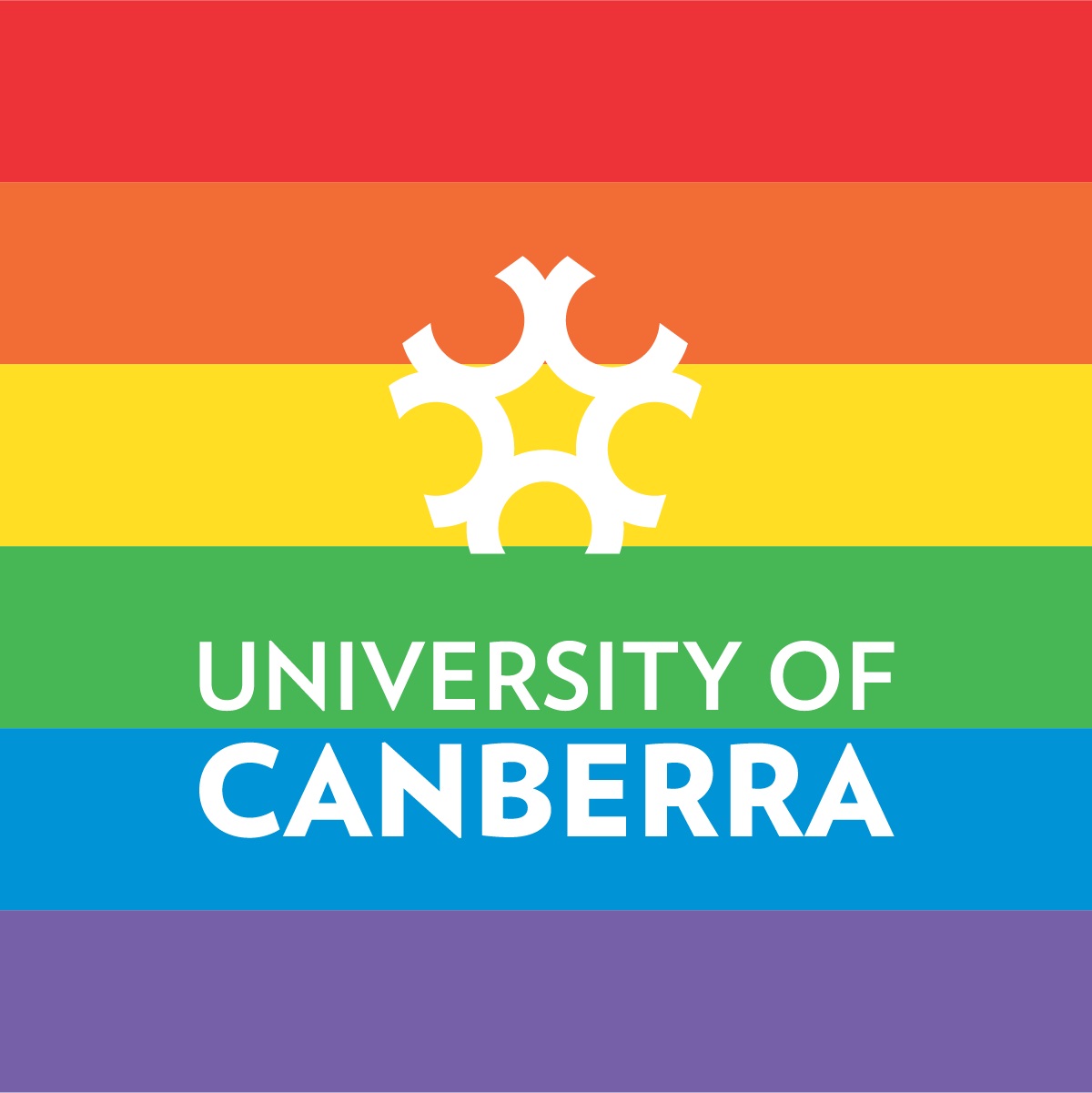
The University of Canberra is deeply committed to representing the rights and interests of all people that are part of the UC community. Our goal is to promote a culture of respect for diversity and inclusion so that all people – no matter their sexuality, gender, religion, race, or ability – feel valued as members of UC.
Through various channels, UC aims to support people from LGBTQIA+ communities to meet their full potential during their time at UC. We have a wonderful network of supportive people at UC who can provide guidance, advice, mentorship, and information about LGBTQIA+ initiatives on campus.
The UC Pride Alliance is one of those channels. The Pride Alliance network provides visible representation and allyship to students and staff members who are diverse in their sexuality, gender and/or sex characteristics and identify as LGBTQIA+.
More information about the UC Pride Alliance and its activities can be found below.